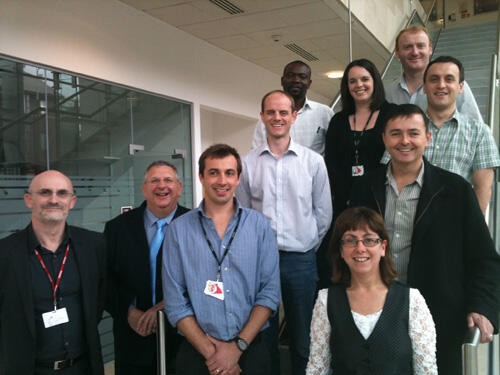
The Liverpool School of Tropical Medicine (LSTM) and the University of Liverpool (UoL) have secured a £1.02 million project grant from the Medical Research Council (MRC) to develop a new drug to combat tuberculosis (TB).
LSTM and UoL will work in collaboration with GlaxoSmithKline to target the respiratory chain of Mycobacterium tuberculosis (Mtb) - the bacterium that causes TB.
Project leaders Dr Giancarlo Biagini (LSTM), Professor Paul O’Neill (UoL) and Professor Steve Ward (LSTM) are now assembling a team of biochemists, pharmacologist and medicinal chemists to design new compounds that will successfully inhibit the bacterium’s respiratory chain. Drug candidates from this stage of the project will be put forward for further pre-clinical development. In addition to the synthesis of inhibitors, a team of molecular modellers, led by Dr N Berry (UoL), will use various computational techniques such as virtual screening to facilitate and inform the discovery process.
Professor Alan North, chair of the Developmental Pathway Funding Scheme at the Medical Research Council says: “While huge strides have been made over the last century to curb the fatal impact of tuberculosis, the need remains to develop better drugs that will tackle as many cases as possible. The Medical Research Council is committed to funding research where collaborations between academic and industry can be successfully translated into new treatments and interventions that tangibly improve the health of patients.”
Dr Giancarlo Biagini explained: "A major failure of current tuberculosis therapies is that they predominantly target bacteria that are actively dividing but are unable to sterilize slow growing (dormant) Mtb, leading to protracted treatment regimes and the development of drug resistance. Because our target enzymes are required for both dormant and replicating Mtb, we are aiming to develop a drug that will be effective even against persistent bugs which hopefully will translate to improved treatment outcomes and shorter treatment regimes”
Professor Paul O’Neill added: "This is an exciting project, in which we aim to turn inhibitors into drug-like candidates in readiness for clinical trials. This project also further demonstrates the strong links between the University’s Chemistry department and LSTM in the area of drug discovery”.
Professor Steve Ward said: “This again demonstrates the value of the Liverpool research vision, focussing on translational projects with real potential to provide tools that will improve peoples lives – in this case a new drug for the millions of patients that suffer from TB.
For further information, please contact
Dr Giancarlo Biagini UoL Press Office
Office: +44 (0)151 705 3151 Tel: +44 (0)151 794 2026